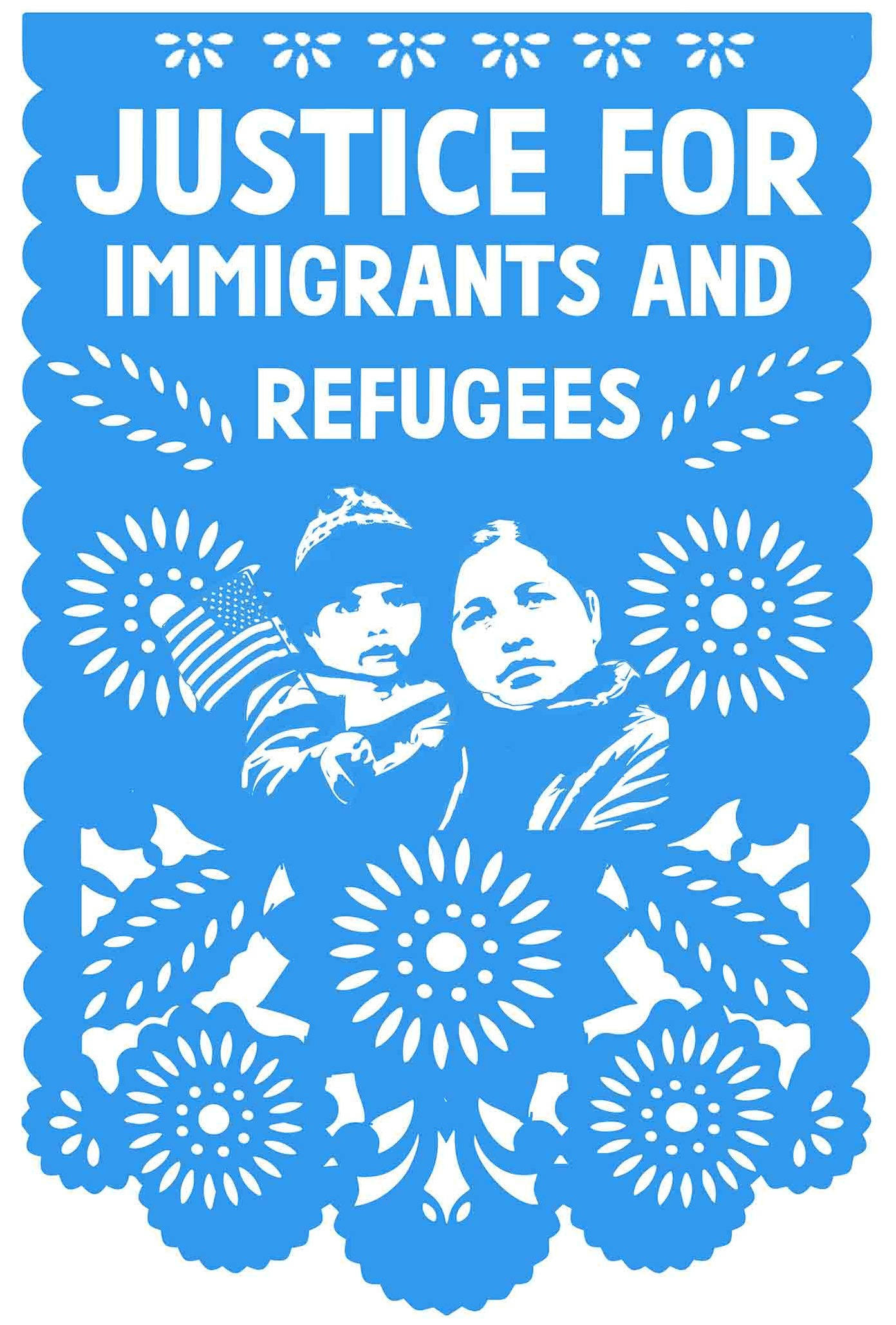Blueprints for a Beloved Community
Protecting our neighbors in times such as these

A woman stood to report out from the Faith table discussion. Many dozens of us were gathered in an overflowing church basement to talk about refugees and immigrants in our community. I had been at the Housing table, talking about barriers and quick-win solutions to securing safe and decent apartments for newcomers. There were other tables of people discussing things like jobs, healthcare and legal services. I wondered what focus would emerge from the Faith conversation.
What emerged was a clear commitment to seeing the dignity in every person.
The woman from the Faith table said that the congregations represented wanted to strengthen their rapid response teams. They have groups of trained volunteers who, when word of an immigration raid comes, mobilize in the moment and go to where the raid is happening. The goal, at a minimum, is to bear witness but they also provide support for family members left behind, ensure proper child and elder care and help track the detained family member through the process.
They show up, in real time. This is what it means to build the beloved community.
At the 2025 Martin Luther King, Jr. Beloved Community Commemorative Service, Dr. Bernice A. King said, “I urge us to heed my father’s timeless call to remain awake through a great revolution, for we are indeed living in revolutionary times.” King continued on to say:
Our healthcare is on the line. The equitable education of our children is on the line. Our housing affordability is on the line. Our basic civil rights protections are on the line. Our economic safety net is on the line. DE&I is on the line. The learning of our true history is on the line. Our voting rights are on the line. Freedom, justice and democracy are on the line. And the survival of our humanity is on the line.
How do we stay awake during times of struggle?
By building the beloved community one person at a time. By embracing, as Pope Francis calls it, a culture of encounter. It will require us to work across differences, be generous and patient, and most of all, to see the humanity in everyone.
One of the most acute and immediate threats posed by the new presidential administration is to immigrants and refugees. Newcomers to the U.S. are already the targets of a dangerous fear campaign and will soon — this week, I’ve read — become the targets of mass deportation raids. The terror is palpable and real. So too is the determination and will of good people who have pledged to stand up for our neighbors in this dark time.
An example. Last weekend, the superintendent of our school district shared a message reminding families of their legal rights in the case of immigration raids and said this:
We believe that the diversity of our school district is our greatest strength. The rich tapestry of cultures and ethnicities that makes up the student population in all of our schools is an asset that fortifies and informs our learning environments.
Please be assured that, no matter how national events unfold around us, our school district will continue to value and defend every student, family and employee our organization is so proud to serve.
I’ve long been proud to be a member of this school community — where newcomers are welcomed and supported every day of the year and where we truly, meaningfully celebrate diversity of race, ethnicity, religion, ability and economic background. We stay awake by staying in community.
Another example. This heartfelt plea for compassion and mercy, from Episcopalian Bishop Mariann Edgar Budde, whose spiritual leadership and devotion shines through so beautifully:
The challenge for me is translate what could be empty sentiments of community — a la a Live, Laugh, Love scenario — into something tangible. What does community actually look like? What does it look like on a cold Tuesday night after a long day of work? What specific steps do I need to take to tend to community and kin networks? That’s what I want to dig into.
Back in 2018, Habitat issued a call to action to build the beloved community, saying:
We have to care about the needs of those among us who need our help. We have to take on the struggles of others as our own and want for them the exact things that we want for ourselves. We have to live each day in the knowledge that we are bound together, that each of us must do our part, that we thrive together or we will wither alone.
The threats to our neighbors are real, terrifying and overwhelming. Community isn’t a luxury in times like these, because we know that our future are bound together.
The Reverend Dr. William Barber II, President of Repairers of the Breach and co-chair of the Poor People’s Campaign, reminds us that “We come in a tradition that knows that the right time to tell the truth is always right now and that telling the truth is the most radical and prophetic moral action you can take in a season of lies.” He also says, and I agree, that “Nothing would be more tragic than for us to turn around at this point.” If we’re actually committed to doing justice and loving mercy, we can’t turn around now.
Elsewhere
Reflecting on vibrant, diverse communities:





